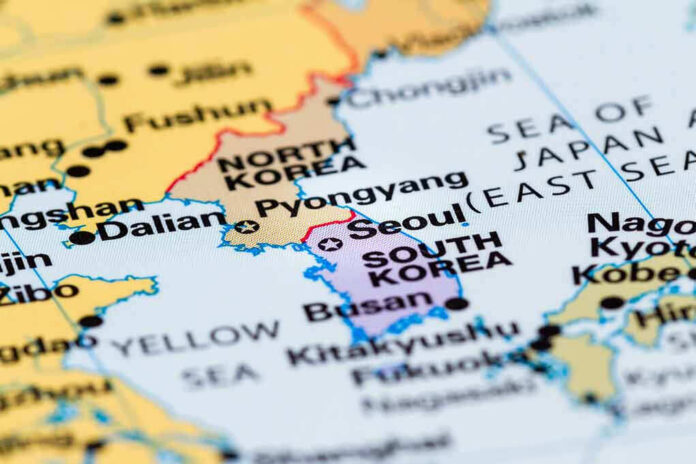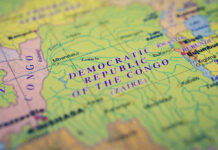
South Korea’s desperate scramble to tie U.S. tariff relief to security guarantees just might be the most revealing sign yet that Washington’s trade negotiations have become a high-stakes game where even our allies are forced to beg for mercy—and good luck finding any for sale in the swampy corridors of globalism.
At a Glance
- Trump’s administration threatens a 25% tariff on all South Korean goods if no new trade deal is reached by August 1.
- South Korea proposes linking trade concessions to U.S. military support in a bid to protect its vital export sectors.
- Political upheaval and weak leadership in Seoul have left South Korea scrambling for a deal as the clock ticks down.
- This battle exposes just how transactional, and frankly, transactional, America’s alliances have become under the pressure of woke global economics.
South Korea’s Tariff Panic: When Allies Line Up for the Chopping Block
President Trump’s “Liberation Day” trade overhaul has South Korea sweating bullets. On July 8, Trump fired off warning letters to Seoul and Tokyo: get a new deal done by August 1, or brace for a 25% tariff on everything from cars to cosmetics. South Korea’s economy, built on a mountain of exports and old-school manufacturing prowess, suddenly finds itself on the edge of a cliff. The KORUS Free Trade Agreement—which eliminated tariffs on 95% of goods—now looks like yesterday’s news. In a twist that would be hilarious if it weren’t so tragic, South Korea’s national security adviser is now in Washington, hat in hand, proposing a “package deal” that would link tariff exemptions to South Korea’s willingness to play America’s bodyguard in the Pacific. This is what happens when you put woke economics ahead of real alliances—the world’s sixth-largest trading partner becomes a supplicant, groveling for access to the U.S. market while dangling security cooperation as bait.
Trump’s playbook is classic: threaten your partners, squeeze them for more, and if they can’t deliver, well, there’s always a bigger tariff gun to wave around. South Korean officials, facing the fallout of a political crisis at home and a new left-leaning president with little foreign policy muscle, have had no choice but to start talking “comprehensive” deals—code for “we’ll give you whatever you want if you just don’t destroy our economy.” The U.S. Trade Representative and Secretary of State Marco Rubio (no stranger to hardball) are holding firm. As of now, only the U.K. and Vietnam have managed to escape the tariff guillotine with new agreements. Seoul, meanwhile, is still stuck in backroom negotiations, the clock ticking louder with every passing day.
Alliances on Sale: Security for Sale at the Trade Table
The irony would be delicious if it weren’t so infuriating. For decades, Americans have footed the bill for defending South Korea—28,500 troops still stand as a tripwire on the Korean peninsula, a living reminder of the cost of freedom and the price of commitment. Now, South Korea wants to tie that security to tariff relief, as if a few more tanks or joint exercises are worth the loss of American manufacturing jobs. This is what happens when trade deals are written in back rooms by elites who care more about global supply chains than the American worker.
South Korea’s new president, Lee Jae-myung, is caught in a bind. Elected in the wake of an impeachment crisis, Lee has little room to maneuver. His team is promising everything short of the kitchen sink to Washington—more market access, fewer regulations, even greater “manufacturing partnerships.” But for Trump, whose entire brand is built on calling out bad deals and demanding better, none of this is enough unless real change happens. The threat is clear: no new deal, no more free ride. South Korea’s negotiators have even floated the idea of a presidential summit to save the relationship, but unless they bring something concrete to the table, it’s hard to see Trump blinking first.
Woke Economics Meets Reality: The Globalist Dream Unravels
This is bigger than a squabble over tariffs. It’s a referendum on the entire globalist model that’s left American workers behind and made our allies dependent on the whims of Washington. South Korea’s automotive, steel, and cosmetics industries are staring down the barrel of a 25% tax, which could mean layoffs and economic chaos back home. But don’t think for a second that U.S. companies and consumers will escape unscathed—higher prices, supply chain headaches, and the inevitable retaliation are all on the menu if tariffs hit.
Trade experts have pointed out that slapping tariffs on a country with which we already have a free trade agreement is, to put it mildly, self-defeating. It undermines American credibility and makes our word as reliable as a campaign promise in an election year. Worse yet, tying trade to security commitments turns our alliances into little more than transactional arrangements that can be bought and sold. The message to the world: stand with America, but be ready to pay up if the winds change in Washington. That’s a dangerous precedent, especially when adversaries like China are more than happy to exploit any cracks in the alliance.
Sources:
TIME: Trump’s Trade Deals, Negotiations, and New Tariffs
Reason: Trump undermines his own South Korea deal with new 25 percent tariffs
Holland & Knight: Status of U.S. Bilateral Trade Negotiations












